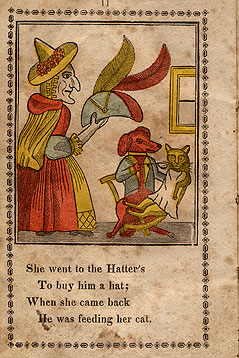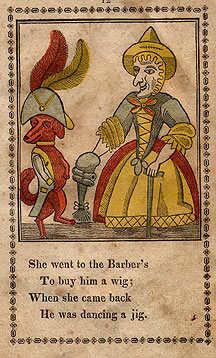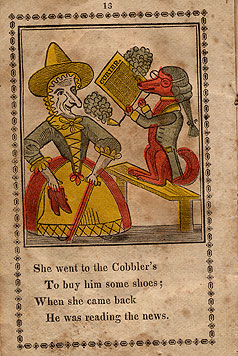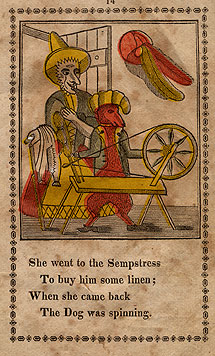|

NOTES ON THE NOVEL: ISSUE 6
Printable View
The illustration below, by Marcus Stone, appeared
in the 1862 edition of Great Expectations. The original serial
(1860-1) and the 1861 editions of the novel were not illustrated.

The coroner, in Mr. Wopsle's hands, became
Timon of Athens; the beadle, Coriolanus: Wopsle, dramatizing
an account from the paper of a "highly popular murder" and its aftermath
(Ch. 18), performs the coroner and the beadle like the title characters
in two of Shakespeare's plays. In Timon of Athens, Timon
-- formerly a wealthy man -- becomes embittered when he experiences
a reversal of fortune and discovers that none of those to whom he
was previously generous will help him; he becomes a hermit and a
misanthrope. In Coriolanus, the title character is a successful
but haughty Roman general. He returns to Rome after conquering the
Volscians, but find that his unpopularity -- he is scornful of the
people -- causes the Romans to banish him. He then leads the Volscians
against Rome, but relents when his mother, wife, and children are
sent to plead with him. The Volscians, however -- despite a treaty
made in their favor with Rome -- view his retreat as a breach of
promise, and kill him. Wopsle's coroner is apparently misanthropic;
his beadle is apparently haughty and overbearing.
The rich man and the kingdom of Heaven:
The passage that Pip hears read out in church is from the gospels,
either Matthew (19:24), Mark (10:25), or Luke (18:25). According
to the version in Matthew, "It is easier for a camel to go through
the eye of a needle, than for a rich man to enter into the kingdom
of God."
Mother Hubbard's dog whose outfit required
the services of so many traders: The children's book The
Comic Adventures of Mother Hubbard and Her Dog gives the story
of Mother Hubbard and her "Favorite Animal." The book begins with
the still-familiar rhyme, "Old Mother Hubbard / Went to the Cupboard
/ To give the poor Dog a bone; / When she came there / The Cupboard
was bare, / And so the poor Dog had none." The rest of the story,
in verse, concerns Mother Hubbard's efforts to equip the dog with
bread, a coffin (when she finds him playing dead), tripe, beer,
red and white wine, fruit, and various garments. For the latter,
she goes to the tailor, the hatter, the barber, the cobbler, the
sempstress, and the hosier's -- hence Pip's reference to the "services
of so many traders." The following illustrations, from an 1832 edition
of the story, show Mother Hubbard's attempts to clothe her dog.




Flip: Flip is a hot alcoholic beverage
-- a "mixture of beer and spirit sweetened with sugar" (OED,
"flip").
Liver wing: The liver wing, a choice cut
of meat, is described by the Oxford English Dictionary as
"the right wing of a fowl, etc. which, when dressed for cooking,
has the liver tucked under it."
Transported a long way off: Imperial England
sentenced many of its convicts to transportation -- deportation
to its colonies. After 1776, America's declaration of independence
meant that England could no longer send its convicts there (Mitchell
486); thus, starting in 1787, convicts were transported mostly to
the penal colonies of Australia. New South Wales and Van Dieman's
Land were the two largest (Australian) colonies, though small penal
colonies also existed on Norfolk Island -- a volcanic island off
the coast of Australia -- and in Bermuda ("Report [of 1838] from
the Select Committee on Transportation" 603).
Bibliographical
information
|

